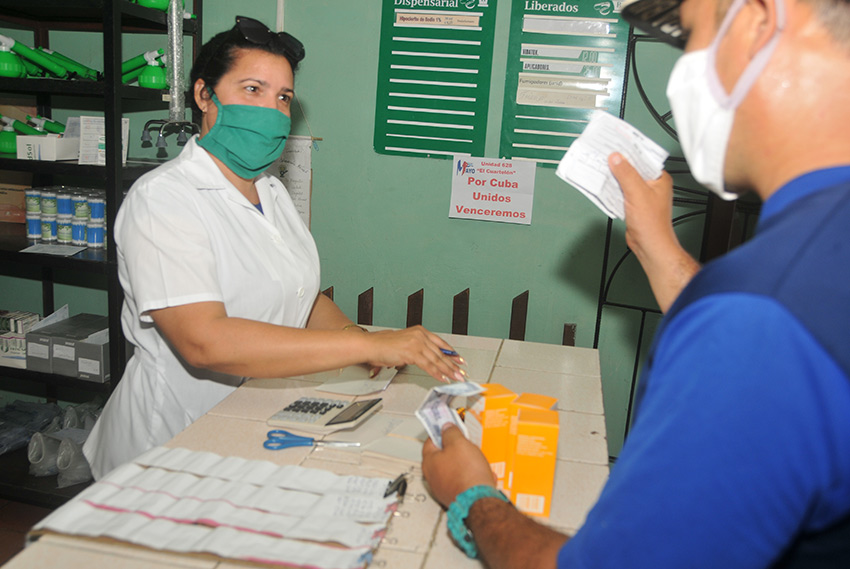
Migdalia has many reasons to go to the pharmacy every month. She speaks openly about her hypertension, the constant asthma attacks and the spinal dilemmas that made her take refuge in retirement. She also tells about her husband's stroke and the aftermath that he still carries. Both are in their 60s. They live alone.
Las Tunas, Cuba - That's why the news reached them like a balm to the many fears that have accompanied her since the sun came up in the midst of COVID-19; they don't have to add the need for an endless line to buy medicine.
Her story is one of about 3, 270 that are repeated these days throughout the province. That is the number of lonely older people who inhabit these lands. They are the most affected age group by this pandemic and the health authorities insist on reaching them at the door. That they do not leave their homes is, right now, a great victory.
The Federation of Cuban Women (FMC) in Las Tunas and the Provincial Directorate of Pharmacies and Opticians are working together in this regard. They have given life to a messenger service that makes it possible to reach that goal; and they are satisfied with the first results, although the work to date is far from perfect.
María del Carmen Ochoa, director of the Pharmacy and Optical Company in the territory, acknowledged to 26Digital that a little more than 900 grandparents have not yet benefited from this measure. A situation that is more evident in some areas of this city, such as Casa Piedra.
In this sense, she made an appeal to the Las Tunas population: “If you know a person who lives alone and has not yet been visited to join the courier service, go to the nearest pharmacy. No one is helpless in the middle of this situation.”
The experience, she also insisted, requires constant training of the staff that has been added to the task. Most of them are active members of the FMC.
Dispensing medicines is something extremely serious, in addition to the federated ones, the teachers and workers of the National Institute of Sport and Recreation (INDER in Spanish), who have joined us, have to be properly trained. Imagine the risk of giving a drug instead of another to a grandparent; that's why you have to do things right.
It's a practice that began in the province and we know that we still need it; but we are pleased with the effort of the people and, above all, with the help that this means for many households.
The expert also highlighted the constant work in all the municipalities of the province. In some of them, there is the impending effort of the Committees for the Defense of the Revolution (CDR). Many have organized this aid process from the neighborhoods and everything has been easier. Neighbors arrive at the dispensaries with the cards and the prescriptions of the most vulnerable. This complex situation has led us to find new forms of solidarity.




